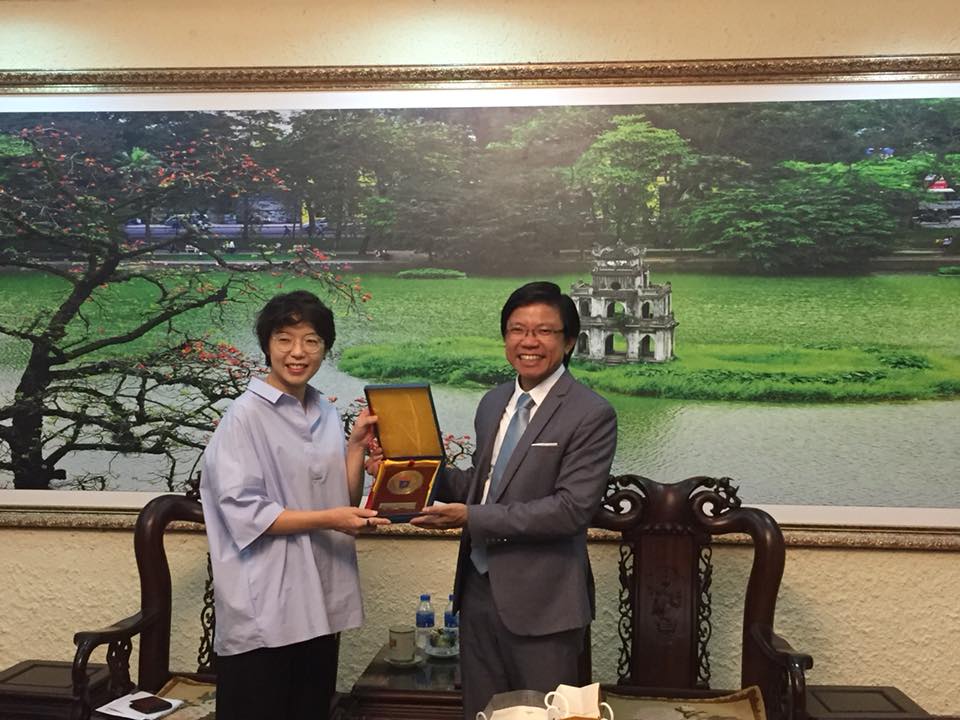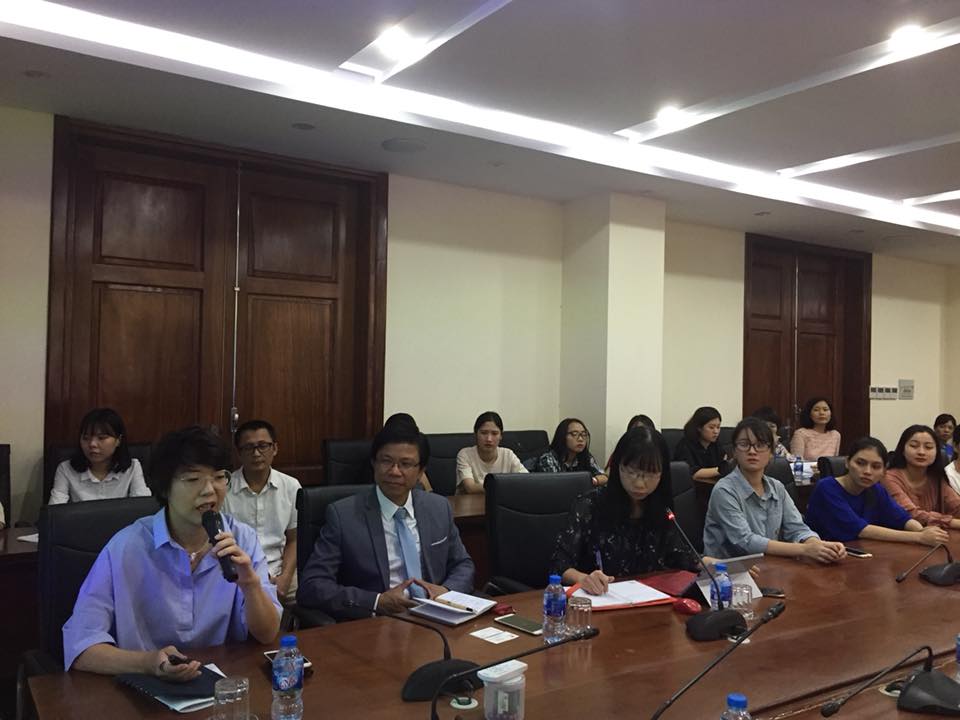Earlier, Associate Professor Hoang Anh Tuan (Vice Rector of the University of Social Sciences and Humanities) and representatives from the Department of Korean Studies, Faculty of Oriental Studies, welcomed Ms. Lee Miyon. Associate Professor Hoang Anh Tuan expressed his gratitude for the support of the Korean Embassy and the Korea Foundation for international exchange in Korean studies research and training at the University of Social Sciences and Humanities. In the future, the Department of Korean Studies, Faculty of Oriental Studies, will strive to develop and establish an independent major. Simultaneously, the Sejong Korean Language Center will continue to offer short-term courses, Korean language proficiency tests and certifications (KPL), and other courses related to Korean language and culture for Vietnamese people. Ms. Lee Miyon shared her appreciation for the University's efforts and pledged that the Korean Embassy in Vietnam will continue to connect with Korean partners to promote the development of Korean studies in Vietnam.

Associate Professor Hoang Anh Tuan presents a commemorative gift to Ms. Lee Miyon.
Following that, before a large audience of faculty, lecturers, and students from the Department of Korean Studies, Faculty of Oriental Studies, Ms. Lee Miyon gave a presentation on the development of South Korea and the Vietnam-Korea relationship.
Korea is a country with a very long history, beginning with the Joseon Dynasty. The ancient history of the Korean people spans from 2333–108 BC. Following this, Korea entered the Three Kingdoms period, a division between the three states of Goguryeo, Baekje, and Silla. This period lasted from 57 BC to 676 AD, when Silla unified the three states. In 926, Korea again fell into the Later Three Kingdoms period (892–935) with three states: Later Goguryeo, Silla, and Later Baekje. The Goryeo Dynasty (918–1392) ended the division of the Korean peninsula nearly 1000 years after seizing power from Later Goguryeo and conquering Silla and Baekje. In 1392, Goryeo collapsed and was replaced by the Joseon Dynasty (1392–1897) and then the Korean Empire (1897–1910). In 1910, the Korean Empire was annexed by the Japanese.

In 1945, Korea was freed from Japanese fascist rule. However, in 1950, Korea fell into civil war, which lasted until 1953. The country was divided into two parts: North Korea and South Korea. Between 1953 and 1960, the South Korean economy suffered a severe downturn. However, from 1960 to 1980, South Korea experienced a boom in economic growth with an average annual growth rate of 8%. This was thanks to the government's economic reforms, the will of the people, and significant investment in education. In 2017, South Korea maintained an economic growth rate of 3% per year, with a total GDP ranking 12th in the world and a GDP per capita ranking 31st.
For Vietnam, South Korea officially established diplomatic relations in December 1992, the same year it opened its embassy in Vietnam. In March 1993, Vietnam opened its embassy in Seoul, South Korea. To date, Vietnam-South Korea relations have spanned 25 years. Economically, since 2011, South Korea has consistently been the largest foreign investor in Vietnam. In 2017, bilateral trade reached US$64 billion. As a result, Vietnam is currently South Korea's fourth largest trading partner. The two countries hope to reach US$100 billion in trade by 2020.
In terms of socio-cultural aspects, relations between the two countries have also seen many encouraging developments. The Korean Wave (Hallyu) has significantly influenced the daily lives of Vietnamese people through films, television, and K-pop music. In 2017, there were approximately 2.4 million Korean tourists in Vietnam and 323,000 Vietnamese tourists in Korea. Vietnamese students highly appreciate the Korean education system, with nearly 15,000 Vietnamese students studying there in 2017. Also in that year, 43 Vietnamese-Korean multicultural families with 154 members visited their maternal hometowns in Vietnam. This shows that the two countries share many socio-cultural similarities, both influenced by Chinese culture.
With these achievements, Ms. Lee Miyon believes in the bright prospects of bilateral relations between Vietnam and South Korea. This is even clearer in the context of President Moon Jae-in's government implementing its "Southern Policy," in which ASEAN in general and Vietnam in particular will become a focal point in South Korea's foreign policy. This also increases the demand for labor for South Korean businesses in the region. According to Ms. Lee Miyon, young Vietnamese people can seize this opportunity to advance their careers while contributing to the common development of the two East Asian countries.
Following her presentation, Ms. Lee Miyon received comments and questions from Vietnamese students on issues such as the impact of the situation on the Korean Peninsula on the employment prospects of ASEAN and Vietnamese youth, the South Korean government's policies on preserving traditional culture, the impact of the upcoming meeting between South Korean President Moon Jae-in and North Korean Chairman Kim Jong-un, and the shift of the entertainment industry to the South of South Korea.
Author:Tran Minh
Newer news
Older news